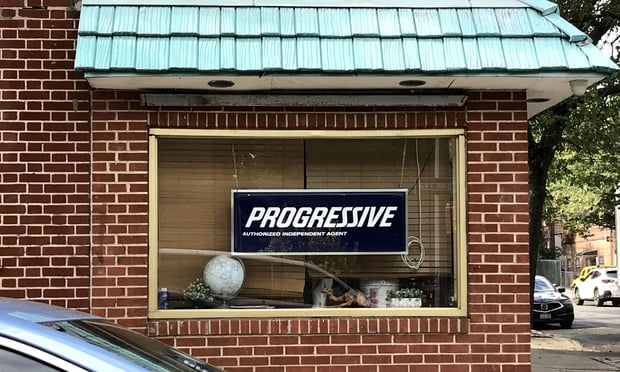WASHINGTON--Two Democratic congressmen are joining the call for an end to the antitrust exemption for the insurance industry, making it likely that in the next Congress greater federal oversight of insurers will be an issue.
At a press conference yesterday Democratic Representatives Gene Taylor of Mississippi, and Charlie Melancon of Louisiana, said a Democratic-controlled House would look into insurance industry practices they contend have shifted the financial burden of Hurricane Katrina claims onto the taxpayer.
Styling themselves the Katrina Task Force, the two congressmen said they will also recommend repeal of the McCarran-Ferguson Act antitrust exemption as it relates to what they allege is "price-fixing" in the property insurance market.
"We've already had preliminary discussions with Reps. Nancy Pelosi, D-Calif., House minority leader, John Dingell, Mich., ranking minority leader at the House Energy and Commerce Committee, John Conyers, Mich., ranking minority member of the House Judiciary Committee, and Barney Frank, D-Mich., ranking minority leader of the House Financial Services Committee," Rep. Taylor said.
The members he mentioned would likely head up these panels if Democrats take over the House in the next Congress.
"And No. 1 is to take away the antitrust exemption of the insurance industry," Rep. Taylor said. "No one should be above the law."
The task force report unveiled by the two congressmen also seeks a broad investigation of the Katrina claims practices of insurance companies that contract with the National Flood Insurance Program to settle claims for flood damages filed by victims of hurricanes.
At the same time, they also said they would support creation of what they termed a government-backed "all-perils" disaster insurance coverage, something some components of the property-casualty insurance industry have been advocating for a decade.
Two different proposals to do so have recently been advanced, and a hearing on the issue was held last month by a subcommittee of the House Financial Services Committee.
In fact, an insurer-backed group, ProtectingAmerica.org, has been formed to create interest, both inside and outside of Congress, for a special mutual insurance company to be created to build up tax-free reserves that would over time be used to deal with such a catastrophic loss as created by Hurricane Katrina. The proposal is opposed by some p-c insurers.
Mr. Taylor has a personal interest in the issue of Katrina claims handling. His home in southern Mississippi was demolished by the hurricane, and he has been battling the insurance industry over the damages every since.
He said at the press conference that the biggest Katrina fraud of them all was the insurance industry practice of declaring that hurricane damage was due to flooding -- a federal government responsibility -- rather than wind, covered by private insurance.
The report said State Farm, Nationwide, Allstate and other insurers paid hundreds of thousands of wind claims inland, where they could not possibly blame the storm surge, but denied wind claims near the coastline, where winds were stronger and water was also present.
Reacting to the report, June Holmes, acting chief executive of the Property Casualty Insurers Association of America (PCI), said, "The limited antitrust exemption provided by the McCarran-Ferguson Act promotes competition in the marketplace by allowing insurers to exchange critical data regarding losses and other factors."
Moreover, she said, "the exemption - which has been on the books for more than 60 years - helps residual markets such as assigned risk and FAIR plans operate more efficiently, facilitates participation in and oversight of state guarantee funds, and permits state control over liquidation of insurers."
Without the exemption, Ms. Holmes said, "small and medium-sized insurers - companies that play a crucial role in providing insurance protection to millions of American motorists, homeowners, and businesses - would be at a competitive disadvantage and would find it much more difficult to enter new geographic markets or expand into new lines of business."
The day before the Taylor-Melancon press conference, the exemption was defended by Michael McRaith, Illinois director of insurance, at a hearing on the issue held by the Antitrust Modernization Commission, a federal agency, in Washington.
Andrew Heimert, executive director and general counsel of the Commission, said the hearing was held because the Commission was aware of congressional interest in the matter, not only as it covers insurance, but also generally.
Want to continue reading?
Become a Free PropertyCasualty360 Digital Reader
Your access to unlimited PropertyCasualty360 content isn’t changing.
Once you are an ALM digital member, you’ll receive:
- Breaking insurance news and analysis, on-site and via our newsletters and custom alerts
- Weekly Insurance Speak podcast featuring exclusive interviews with industry leaders
- Educational webcasts, white papers, and ebooks from industry thought leaders
- Critical converage of the employee benefits and financial advisory markets on our other ALM sites, BenefitsPRO and ThinkAdvisor
Already have an account? Sign In Now
© 2024 ALM Global, LLC, All Rights Reserved. Request academic re-use from www.copyright.com. All other uses, submit a request to [email protected]. For more information visit Asset & Logo Licensing.








